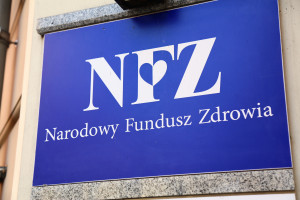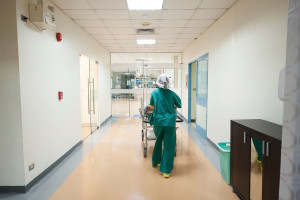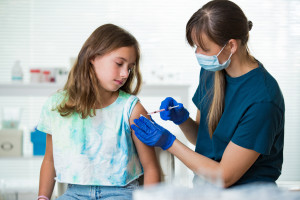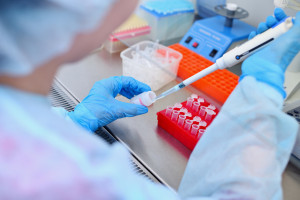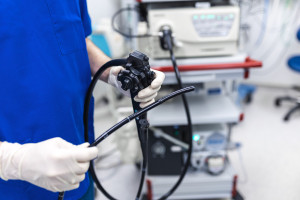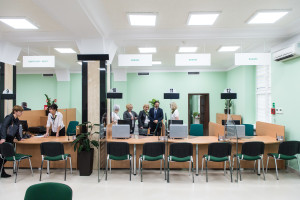Failure of the National Oncology Strategy? Alarming data. "Key results not achieved"

- The Parliamentary Health Committee adopted the report for 2024 on the implementation of the National Oncology Strategy
- In 2024, 51 NSO tasks were completed, spending PLN 500 million for this purpose, as planned.
- The priorities included: educating the public and carrying out preventive activities, including the implementation of the HPV vaccination program, developing new therapeutic methods and optimizing the patient care process.
- The aim of the National Oncology Strategy (NSO) is to increase 5-year survival rates, reduce the incidence of cancer and improve the quality and effectiveness of treatment. The total budget for 2020-30 is PLN 5.1 billion . In 2020, it was PLN 250 million, in 2021 over PLN 504 million, in 2022 and 2023 - PLN 450 million each, and from 2024 to 2030 - PLN 500 million each annually - reminded Deputy Minister of Health Marek Kos at the meeting of the Sejm Health Committee.
He clarified that NSO’s activities are focused on 5 key areas:
- development of medical personnel training through investment in human resources,
- increasing public awareness of cancer prevention through investment in education,
- increasing the availability and reporting of screening tests and improving their quality,
- support for scientific research in oncology – investments in science and innovation,
- optimisation of the treatment process and equipping the centres with modern equipment.
As noted by Marek Kos, 51 NSO tasks were completed in 2024. Priorities included educating the public and conducting preventive activities, including the implementation of the HPV vaccination program, developing new therapeutic methods, and optimizing the patient care process.
Budget funds from Part 46 Health in the amount of PLN 500 million have been allocated for the implementation of the NSO tasks in 2024, of which current funds amount to PLN 80 million and capital funds – PLN 420 million.
HPV vaccinations and screening testsThe Deputy Minister of Health provided examples of projects implemented within 5 key areas.
- In terms of investment in staff, the education standards for nursing and midwifery studies were reviewed and amended in terms of knowledge about oncological prevention and care for patients during and after oncological treatment - he pointed out.
- In the area of investment in prevention and education, the implementation of the universal HPV vaccination program was continued. From September 2024, vaccinations are available after the age of 9 until the age of 14. Since September, a joint program of the Ministry of National Education and the Ministry of Health regarding the possibility of anti-HPV vaccinations in schools has also been launched. In 2024, a total of almost 318 thousand children were vaccinated, including 186 thousand girls and 132 thousand boys. By March 2025, over 73 thousand children were vaccinated in schools. The overall vaccination rate is currently over 14 percent - informed Marek Kos.
- In the area of investment in the patient, i.e. secondary prevention, the focus was on monitoring the quality of screening tests, including the breast cancer prevention program and the cervical cancer prevention program. Since January 2024, quarterly correction factors related to the number of patients reporting to these preventive programs have been introduced to primary healthcare. Work was also underway on solutions that would allow for the introduction of two modern tests in 2025: cytology on a liquid base and the HPV HR test - he noted.
New therapies and equipment purchases- In the case of the area of investment in science and innovation, the list of reimbursed drugs in oncological therapies has been expanded. In 2024, reimbursement will cover 135 innovative therapies, including 36 molecular oncological indications . As part of the 4th edition of the competition for the establishment of a Clinical Research Center, it was recommended to support 12 projects for a total amount of nearly PLN 200 million from KPO funds. The Polish network of clinical trials will now be created by 35 centers. In turn, in the competition for supporting existing Clinical Research Centers, it was recommended to support 18 projects for a total amount of PLN 110 million - he indicated.
National Oncology Network- In terms of investment in the oncological care system, nearly PLN 414 million was invested in the purchase of equipment for the treatment of malignant tumors. This includes 36 mammographs for 26 entities, 14 accelerators for 13 entities, a brachytherapy machine for 1 entity, radiotherapy treatment planning systems for 14 entities, equipment for pulmonology departments, equipment for the treatment of leukemia and lymphomas, and equipment for pathomorphological diagnostics for 28 entities - he listed.
As Marek Kos said - in 2024, work was also continued on the implementation of the National Oncology Network. Medical entities were qualified for individual levels of protection SOLO I, II and III, 16 Provincial Monitoring Centers were established, patient paths were introduced for 18 groups of cancers, which were published as key diagnostic and treatment recommendations. The process of training oncology care coordinators also began.
"Key results not achieved"- A support program for hospitals qualified for the KSO was launched, financed from the KPO. Projects indicated by 106 entities were recommended for support, for a total amount of approximately PLN 5 billion . In 2024, work was carried out on the e-DiLO card, the National Oncology Portal, which was launched in May 2025, the KSO hotline was introduced, and support for the implementation of the KSO by the National Oncology Council was provided - added Kos.
Joanna Frątczak-Kazana from the Alivia Oncology Foundation drew attention to the fact that, halfway through the implementation of the NSO , key results have not been achieved in the three most important areas from the citizens’ point of view : primary prevention, secondary prevention and the organization of the care system.
- In primary prevention, HPV vaccination coverage was supposed to be 60% by the end of 2024, it was 11%. Health education was supposed to be systematically present in schools, but it will remain an optional subject. Preventive activities are scattered, there is no nationwide network of anti-smoking clinics and no effective monitoring of the effects of the actions taken - she emphasized.
- In the area of secondary prevention - by the end of 2024, the rate of mammography screening was to be at least 60%, it was 33%. The rate of cytology screening instead of 60% was 11% - she recalled.
- In terms of the organization of the system, all patients were supposed to be covered by coordinated oncological care by the end of 2024, which also failed. Access to rehabilitation services, as well as palliative and hospice care, was supposed to be equalized and increased. Has it been? It is difficult to assess this without measurable indicators. There is still a lack of access to information on the effectiveness of diagnostics and treatment in individual cancers and centers, although this was supposed to happen by the end of 2021 - she noted.
As she emphasized, NSO lacks independent, external evaluation, and tasks are considered completed even though they are not implemented in the system. Moreover, deadlines are often changed and goals are redefined .
- There should be an obligation to report on effectiveness measures for individual tasks. Postponing deadlines and redefining goals without transparent justification and public consultation should not be possible at all. Data on the effectiveness of promotional campaigns should also be published - argued Joanna Frątczak-Kazana.
As Marek Kos said, the time delay has accompanied the National Oncology Strategy from the very beginning due to the COVID-19 pandemic , which stopped many activities from the very beginning.
- Let us remember, however, that the Strategy will be implemented until 2030 - he noted.
He added that when it comes to evaluation, it is handled by both the National Oncology Council and the National Health Fund.
rynekzdrowia

